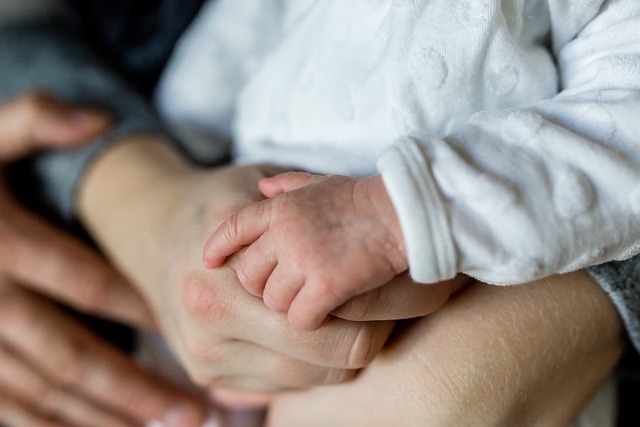Child Welfare Legal Services in Lane County, Oregon, are vital for protecting families' interests within DHS child welfare cases. These services offer specialized legal support aligned with Oregon family law, empowering parents to understand their rights and actively engage in decisions. By ensuring clear communication and advocacy, these services significantly impact outcomes, especially in cases of removal or placement. Understanding the child protective services law is crucial for parents to assert their parental rights under Oregon family law, balancing child safety with preserving parental interests. The Lane County Child Advocacy Approach integrates legal services with empathetic advocacy, creating a supportive environment for families in crisis.
Protecting family interests in child welfare situations requires a nuanced understanding of legal services and their role in safeguarding parents’ rights. This article delves into the intricate balance between ensuring child safety and preserving privacy, exploring key components like Oregon’s parental rights protection under DHS cases, Lane County’s advocacy approach, and navigating the complex landscape of Child Protective Services law. By examining these aspects, we aim to highlight strategies for building resilient families post-case and preventing future crises.
- Understanding Child Welfare Legal Services and Their Role in Protecting Families
- Parental Rights Protection: A Cornerstone of Oregon Family Law in DHS Cases
- The Lane County Child Advocacy Approach: Supporting Families Through Crisis
- Navigating the Child Protective Services Law: Ensuring Fair Treatment for All Parents
- Balancing Safety and Privacy: Confidentiality Considerations in Welfare Cases
- Building Resilient Families: Post-Case Support and Future Prevention Strategies
Understanding Child Welfare Legal Services and Their Role in Protecting Families

Child Welfare Legal Services play a pivotal role in protecting families involved in DHS child welfare cases. These specialized services are designed to ensure that parental rights are safeguarded throughout the process, offering legal guidance and representation tailored to Oregon family law. In Lane County child advocacy, for instance, these services help navigate complex legal landscapes, ensuring parents understand their rights and obligations.
By providing access to competent legal counsel, Child Welfare Legal Services empower families to actively participate in decision-making regarding their children’s future. This is particularly crucial in cases involving removal or placement, where clear communication and advocacy can make a significant difference in the outcome. Understanding the child protective services law is essential for parents to assert their rights and work towards positive resolutions for their family.
Parental Rights Protection: A Cornerstone of Oregon Family Law in DHS Cases

In Oregon, protecting family interests in child welfare situations is a cornerstone of the state’s family law system, especially in cases involving the Department of Human Services (DHS). Parental rights protection is a vital aspect of this framework, ensuring that parents are treated fairly and their legal rights are upheld during DHS child welfare cases. Lane County, for instance, has established robust child advocacy programs to support families navigating these complex legal processes.
The Oregon family law system recognizes the importance of balancing child protective services law with the preservation of parental rights. This delicate balance ensures that while the primary focus is on the child’s safety and well-being, parents are still afforded due process and the opportunity to defend their parental status. Child welfare legal services play a crucial role in facilitating this protection, offering guidance and representation to families involved in DHS cases, ultimately fostering a more supportive and just environment for all parties concerned.
The Lane County Child Advocacy Approach: Supporting Families Through Crisis

In situations involving child welfare, protecting family interests is paramount. The Lane County Child Advocacy Approach stands out as a model for supporting families during crises. This comprehensive strategy, deeply rooted in Oregon family law and child protective services law, prioritizes the well-being of both children and their parents. By integrating child welfare legal services with sensitive advocacy, it ensures that parental rights protection remains a central focus throughout DHS child welfare cases.
The Lane County model encourages collaboration between various stakeholders, fostering an environment where families feel heard and supported. This holistic approach acknowledges the emotional complexity of such cases, ensuring that interventions are not just legally sound but also empathetic. It’s a testament to the belief that effective child welfare practices should harmonize legal safeguards with compassionate support, ultimately strengthening families navigating these challenging times.
Navigating the Child Protective Services Law: Ensuring Fair Treatment for All Parents

Navigating the complex web of Child Protective Services (CPS) laws is a challenging task for any parent, especially when their child’s welfare is at stake. In Oregon, including Lane County, understanding your parental rights and the CPS process is crucial to ensuring fair treatment within DHS child welfare cases. The state’s family law system aims to balance the protection of children with preserving the rights and interests of their parents.
The Child Protective Services Law provides a framework to address concerns regarding a child’s safety and well-being while also offering safeguards for parents’ due process rights. In Lane County child advocacy efforts, legal services focus on educating parents about their entitlements, ensuring they are treated equitably throughout the investigation and case management stages. By familiarizing themselves with Oregon family law, parents can actively participate in decisions affecting their children and protect their interests effectively.
Balancing Safety and Privacy: Confidentiality Considerations in Welfare Cases

In child welfare situations, balancing safety and privacy is a delicate act, especially when considering confidentiality in legal services related to DHS child welfare cases. While the primary focus is on the child’s well-being and protection under Oregon family law, respect for parental rights and privacy is also paramount. Lane County child advocacy emphasizes this nuanced approach, recognizing that open disclosure may be necessary for effective intervention while maintaining confidentiality where it protects sensitive information.
The complexity arises in cases involving Child Protective Services (CPS), where the state’s interest in safety might conflict with parents’ right to privacy. CPS often requires access to personal and family information to make informed decisions. However, this data must be handled with care to avoid breaches or unauthorized disclosures that could further harm individuals involved in these sensitive Oregon family law matters.
Building Resilient Families: Post-Case Support and Future Prevention Strategies

Building resilient families is a key strategy to prevent future DHS child welfare cases and ensure the well-being of children involved in current Lane County child advocacy proceedings. After a case concludes, ongoing support services are crucial for families to heal and develop coping mechanisms that enhance their ability to navigate challenges. Child welfare legal services play a vital role in this process by offering guidance on parental rights protection under Oregon family law and connecting families with necessary resources.
Post-case support can include counseling services, financial aid programs, and parenting classes designed to fortify family structures and prepare them for potential future stressors. By fostering resilience, these strategies aim to break the cycle of child protective services involvement and promote sustainable family unity. In the context of Oregon’s child welfare legal framework, proactive prevention measures not only safeguard parental rights but also contribute to a safer and more supportive environment for all involved.






